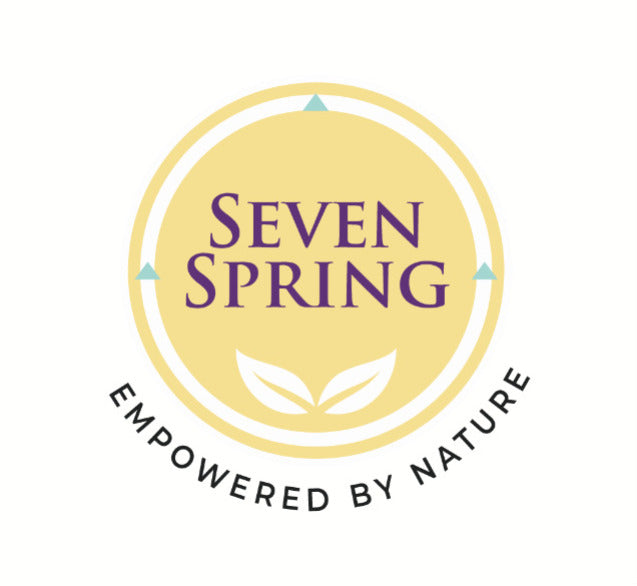Ayurveda, an ancient science existing since the time of the Indus Valley Civilization, has borrowed knowledge and cure from the elements of nature. It had been discovered in 3300-1300 BCE; during the time of the Indus Valley Civilization, and passed on from its creator to the ancient Indian mystics, through meditation.
The Ayurvedic book of Charaka & Sushruta, features a Vedic Hymn mentioned within the tenth mandala (10-97), attributing medicinal and spiritual importance to the co-influencing of trees and plants. It celebrates the elements of life, especially the 4 main elements: Fire, Wind, Water, Mother Earth, along with flora and fauna who reside upon her. The book additionally characterizes health and diseases as the manifestation of soul, spirit, mind & body, stating that while the mind and body are susceptible to suffering, the soul and spirit are free. The Ayurvedic herbs and amulets possess the art of curing all issues that affect the physical body and it is based on the belief that the fragile balance of mind, body, and spirit determines the health and wellness of the body.
Ayurveda was officially recognized by WHO (World Health Organization) in 1976. Years of research affirms the herbs are known to rid oneself of diseases and flush out all of the toxins present within the blood and body. Therefore, it aids in blending our modern lifestyle and health-oriented habits with the ancient wisdom of using natural substances, medicines, and herbs to assist us to lead a healthy, happy, de-stressed & disease-free life. Hence, to guard our vulnerable body we make all the efforts required in maintaining harmony among all our elements and achieve the ultimate goal of life longevity.
Since the focal point of Ayurveda is that of prevention and promotion of the body’s extent for maintenance and balance; the medicines manufactured are non-invasive and non-toxic and free from any side effects. Herbs, when used daily, help re-establish harmony and balance within the body, and in addition, detoxify and cleanse unnecessary toxins to normalize the body’s functions.
At Seven Spring, we too firmly believe that it is prevention rather than cure that helps us live the best life, strictly adhering to Vedic philosophy of life and health. Our teas are concocted keeping this philosophy in mind.
Here are some of the blends of herbs and teas that we wish to suggest based on research supported by Ayurvedic texts and philosophies.
1. Cumin Seeds: The Assimilator
Instruction: Soak the seeds overnight and blend with our tangy teas namely Hibiscus Tea, Lemon Tea, or Blueberry Tea
Properties: An Asian spice made from the seeds of the Cuminum Cyminum plant, which incorporates a unique earthy, nutty, and spicy taste.
Benefits:
a. Increases activity of digestive enzymes & aids in faster and easier fat digestion along with stomach pain & bloating.
b. Prevention of type 2 diabetes by lowering blood glucose levels and improving insulin sensitivity.
c. Prevents heart condition by raising HDL (good) cholesterol levels.
2. Cardamom & Black Cardamom: The Natural Tranquilizer
Instruction: Blend crushed cardamom for a sweet and refreshing taste
Properties: Warming and Calming qualities, in conjunction with sweet and pungent tastes.
Benefits:
a. Aids in lowering blood pressure
b. Defends against the helicobacter pylori bacteria, a common cause of stomach ulcers
c. Minimizes the dimensions of gastric ulcers by 50% or perhaps removes them entirely
d. Black cardamom helps soothe cold and cough by lubricating the respiratory pathways.
3. Chia Seeds: The Detoxifier
Instruction: Soak the seeds overnight and blend with Pomegranate Tea, Yerba mate, or Pan-Fried Tea.
Properties: Mild nutty flavor and can be added to almost anything sweet or savory.
Benefits:
a. One of the most effective providers for omega-3 fatty acids.
b. Acts as a cooling agent for the body.
4. Cinnamon: The Rejuvenator
Instruction: Mix with Blue Pea Tea, Jasmine Tea, or English breakfast Tea.
Properties: Warming spice that incorporates sweet, pungent, and bitter tastes.
Benefits:
a. Pacifying Kapha and good for balancing Vata also.
b. Reduces pain & stiffness
c. detoxifies the kidney
d. Improves respiratory problems, and enhances blood circulation.
5. Nutmeg: The Aromatic
Instruction: Mix with White Tea, Imperial Earl Grey, or Saffron Tea.
Properties: Nutmeg (Jaiphal) belongs to species of the genus ‘Myristica’.
Benefits:
a. An aphrodisiac and a digestive tonic.
b. Renders a mild, sweet, and warm fragrance to the drink.
c. Powerful antioxidant and anti-inflammatory properties reduce the danger of chronic diseases.
d. Uplifts the skin’s natural glow and radiance.
e. Treats digestive woes like indigestion, constipation, and ulcers.
6. Ginger Root: The Fat Cleanser
Instruction: Blend with Black Tea, Marigold Tea, Chamomile Tea, or Lemongrass Tea.
Properties: A robust, aromatic, gentle, and flavorful herb, used for around 4000 years, and an underground stem called a rhizome and its medicinal properties were discovered around 2000 years.
Benefits:
a. Treats nausea, loss of appetite, and vomiting, especially after surgery.
b. Helps battle cold and flu.
c. Reduces pain and swelling.
d. Suppresses compounds that cause inflammation.
e. Aids in losing weight by eliminating the stubborn fat from your body.
7. Brahmi: The Brain Tonic
Instruction: Blend with Cranberry Green tea, Toasty Oolong Tea, or Lemon Green tea.
Properties: Bacopa Monnieri in Latin, encompasses a sweet taste.
Benefits:
a. The best herb for the brain and nervous system.
b. Daily consumption rejuvenates the body and mind.
c. Imparts cooling energy.
d. Balances left & right hemispheres of the brain.
e. Removes toxins and blockages from the nervous system.
f. Helps in depression, enhances intelligence & improves memory and concentration.
g. Enhances creativity and supports psychological health


